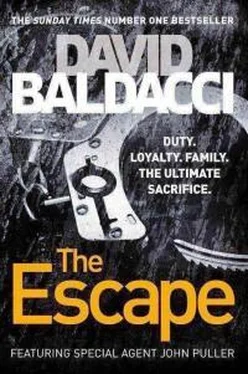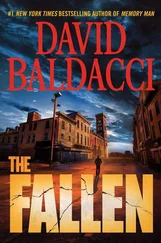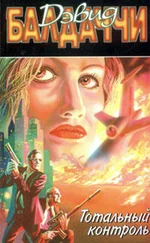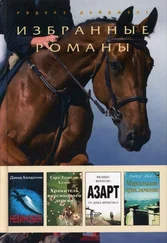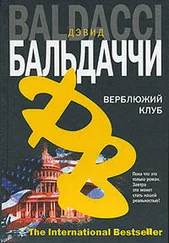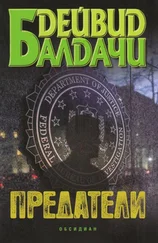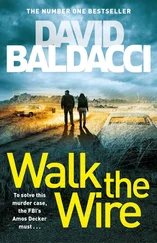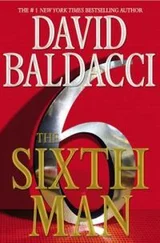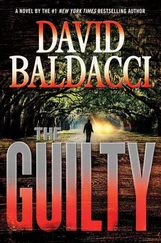“We’ve got shots fired,” shouted a guard into his radio. “Shots fired, undetermined location, unknown source.”
This message was repeated down the line until it was ringing in every guard’s ears. Shots fired and nobody knew from where or by whom. And since none of the guards had guns, that meant one of the prisoners must. Maybe more than one.
Now things, already serious, morphed into something bordering on chaotic.
And then the situation became a lot worse.
The sound of an explosion flooded the interior of pod number three, which contained the SHU. Now the borderline chaotic leapt right into utter meltdown. The only thing that could restore order was an overwhelming show of armed force. And there were few organizations in the world that could do overwhelming armed force better than the United States Army. Especially when that gunned-up force was right next door at Fort Leavenworth.
Minutes later, six green Army trucks swept through the powerless boundary gates of the DB, whose high-tech intrusion detection systems had been rendered inoperable. Military police in SWAT gear and carrying shields poured off the trucks, their automatic weapons and shotguns racked and ready. They charged straight into the facility, their fields of vision bright and clear owing to their latest-generation night-vision goggles that made the blackness inside the prison look as fresh and vibrant as anything on an Xbox.
Prisoners froze where they were. Then those who were still standing immediately lay facedown, their hands behind their backs and their limbs trembling in the face of superbly trained soldiers loaded for war.
Order was eventually achieved.
Army engineers were able to restore power and the lights came back on and doors could lock once more. In the meantime, the MPs from Fort Leavenworth turned the facility back over to the guards and left the way they had come. The prison commander, a full colonel, gratefully exhaled as the weight of the world, or at least a sudden wall appearing between him and his next promotion, was lifted.
Prisoners shuffled back into their cells.
A head count was done.
The list of prisoners accounted for was compared to the official list of inmates. Initially, the numbers tallied.
Initially.
But on further inspection that did not turn out to be the case.
There was one prisoner missing. Only one. But he was an important one. He had been sent here for life. Not because he had fragged an officer or otherwise killed one or many. Or because he had raped, slashed, burned, or bombed. He was not on death row. He was here because he was a traitor, having betrayed his country in the area of national security, which was a term that made everyone sit up and look over their shoulder.
And even more inexplicably, on the cot in the missing prisoner’s cell was someone else – an unidentified dead man lying facedown under the covers. This was the cause of the initial miscount of heads.
They searched every corner of the DB, including the air ducts and any other crevices they could think of. They raced outside into the now dying storm to search there, marching in methodical columns, leaving nothing unexamined.
But this plot of Kansas soil did not yield what they were looking for.
The inmate was gone. No one could explain how. No one could say how the dead man had come to be here. No one could make sense of any of this.
There was only one obvious fact.
Robert Puller, once a major in the United States Air Force and an expert in nuclear weaponry and cyber security, and also the son of one of the most famous fighting soldiers of them all, the now retired Army lieutenant general John Puller Sr., had escaped from the inescapable DB.
And he had left behind an unknown dead man in his place, which was even more inexplicable than how he had managed to break out.
Informed of this seeming impossibility turned stark reality, the prison’s commander lifted the secure phone in his office, and in doing so kissed his once promising career goodbye.
JOHN PULLER HAD his M11 pistol pointed at the man’s head.
A fancied-up Beretta 92 – known in the military as an M9A1 – was pointed right back at him.
It was a twenty-first-century duel that promised no winners and portended two fatal losers.
“I’m not taking the fall for this,” roared PFC Tony Rogers. He was a black man in his twenties with the image of a “terrible towel” and the Pittsburgh Steelers logo inked on his forearm. He was about five-nine, and had a shaved head, dumbbell shoulders, ripped arms, and beefy thighs mismatched with a high-pitched voice.
Puller was dressed in khaki pants and a navy blue windbreaker with the gold letters “CID” stenciled on the back. Rogers wore his Army Combat Uniform, or ACU, pants, regulation boots, and an Army T-shirt, with a patrol cap on his head. He was sweating though the air was crisp. Puller was not sweating. Rogers’s gaze was erratic. Puller’s eyes did not lift from Rogers’s face. He wanted to exude calm, hoping to graft it onto the other man.
The pair of soldiers had squared off in an alley behind a bar outside of Lawton, Oklahoma, home to Fort Sill and also the grave of the Indian leader Geronimo. Puller had been to Lawton a couple of times before, and his father had been briefly stationed there once during his Army career. He was here now in his capacity as an agent in the Criminal Investigation Command attempting to arrest an alleged killer who wore the same uniform he did, and who was now pointing his Army-issued sidearm at him.
Puller said, “So tell me your side of the story.”
“I didn’t shoot anybody. You hear me? You are out your damn mind saying I did.”
“I’m not saying anything. I’m just here because it’s my job. You have defenses to the charges, then good for you. Use them.”
“What are you talking about?”
“I’m talking about you getting a kickass JAG lawyer to defend you and maybe you beat the charge. I know some good ones. I can refer you. But doing what you’re doing right now is not helping your case. So put the gun down and we forget all about you running away and then drawing down on me.”
“Bullshit!”
“I have a warrant for your arrest, Rogers. I’m just doing my job. Let me do it peacefully. You don’t want to die in a crummy alley in Lawton, Oklahoma. And I sure as hell don’t.”
“They’re gonna put me away for life. I got a momma to support.”
“And your mother wouldn’t want you to end it like this. You’ll get your day in court. They’ll hear your side. You can bring your mother in as a character witness. Let the legal system do its thing.” Puller said all of this in an even, calming voice.
Rogers eyed him cagily. “Look, why don’t you just get out my way so I can walk out this alley and out the damn Army?”
“We both wear the same uniform and I can try to help you, PFC. But I can’t do that.”
“I will shoot your ass. I swear to God I will. ”
“Still won’t be happening.”
“I don’t miss, man. Top marks on the damn range.”
“You fire I fire. We both go down. It’s stupid for it to end that way. I know you can see that.”
“Then let’s just call it a truce. You just walk away.”
Puller gave one shake of the head while his gaze and gunsight held on Rogers. “I can’t do that.”
“Why the hell not?”
“You’re in the artillery, Rogers. You have a job to do, right? One that the Army spent a lot of time and money drilling into you, right?”
“Yeah, so what?”
“Well, this is my job. And my job doesn’t let me walk away. Now, I don’t want to shoot you, and I don’t think you want to shoot me, so put the gun down. It’s the smart thing to do. You know that.”
Читать дальше
